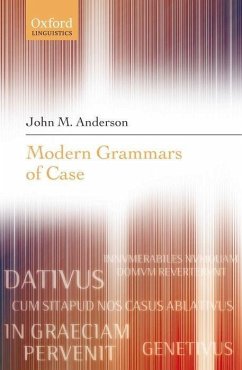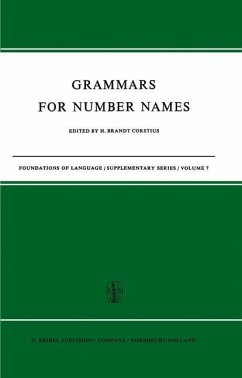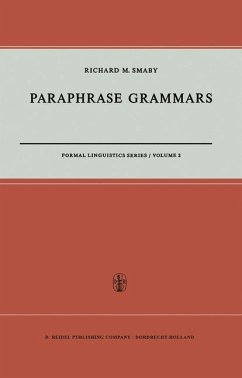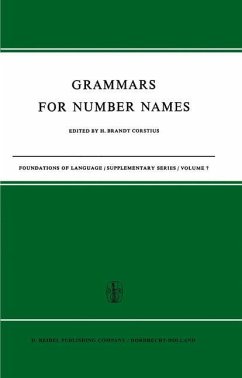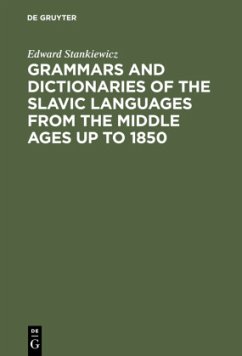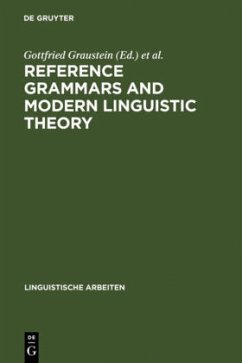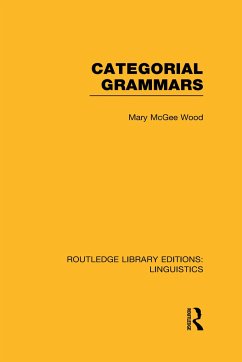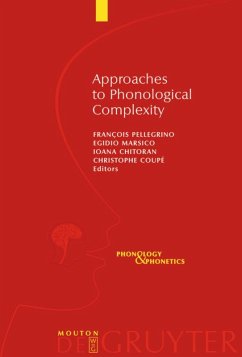
Efficiency and Complexity in Grammars

PAYBACK Punkte
41 °P sammeln!
John Hawkins demonstrates a clear link between how languages are used and the conventions of their grammars. He sets out a theory in which performance shapes grammars and accounts for the variation patterns found in the world's languages. He backs this up with evidence from a wide array of languages. He also considers the profound consequences of this correspondence for explanations of language change and evolution, and for models of performance and acquisition. His
book is of fundamental importance for linguistic theory.
book is of fundamental importance for linguistic theory.
This book addresses a question fundamental to any discussion of grammatical theory and grammatical variation: to what extent can principles of grammar be explained through language use? John A. Hawkins argues that there is a profound correspondence between performance data and the fixed conventions of grammars. Preferences and patterns found in the one, he shows, are reflected in constraints and variation patterns in the other. The theoretical consequences of the
proposed 'performance-grammar correspondence hypothesis' are far-reaching for current grammatical formalisms, for the innateness hypothesis, and for psycholinguistic models of performance and learning. Drawing on empirical generalizations and insights from language typology, generative grammar,
psycholinguistics, and historical linguistics, Professor Hawkins demonstrates that the assumption that grammars are immune to performance is false. He presents detailed empirical case studies and arguments for an alternative theory in which performance has shaped the conventions of grammars and thus the variation patterns found in the world's languages. The innateness of language, he argues, resides primarily in the mechanisms human beings have for processing and learning it.
This important book will interest researchers in linguistics (including typology and universals, syntax, grammatical theory, historical linguistics, functional linguistics, and corpus linguistics), psycholinguistics (including parsing, production, and acquisition), computational linguistics (including language-evolution modelling and electronic corpus development); and cognitive science (including the modeling of the performance-competence relationship, pragmatics, and relevance
theory).
proposed 'performance-grammar correspondence hypothesis' are far-reaching for current grammatical formalisms, for the innateness hypothesis, and for psycholinguistic models of performance and learning. Drawing on empirical generalizations and insights from language typology, generative grammar,
psycholinguistics, and historical linguistics, Professor Hawkins demonstrates that the assumption that grammars are immune to performance is false. He presents detailed empirical case studies and arguments for an alternative theory in which performance has shaped the conventions of grammars and thus the variation patterns found in the world's languages. The innateness of language, he argues, resides primarily in the mechanisms human beings have for processing and learning it.
This important book will interest researchers in linguistics (including typology and universals, syntax, grammatical theory, historical linguistics, functional linguistics, and corpus linguistics), psycholinguistics (including parsing, production, and acquisition), computational linguistics (including language-evolution modelling and electronic corpus development); and cognitive science (including the modeling of the performance-competence relationship, pragmatics, and relevance
theory).



